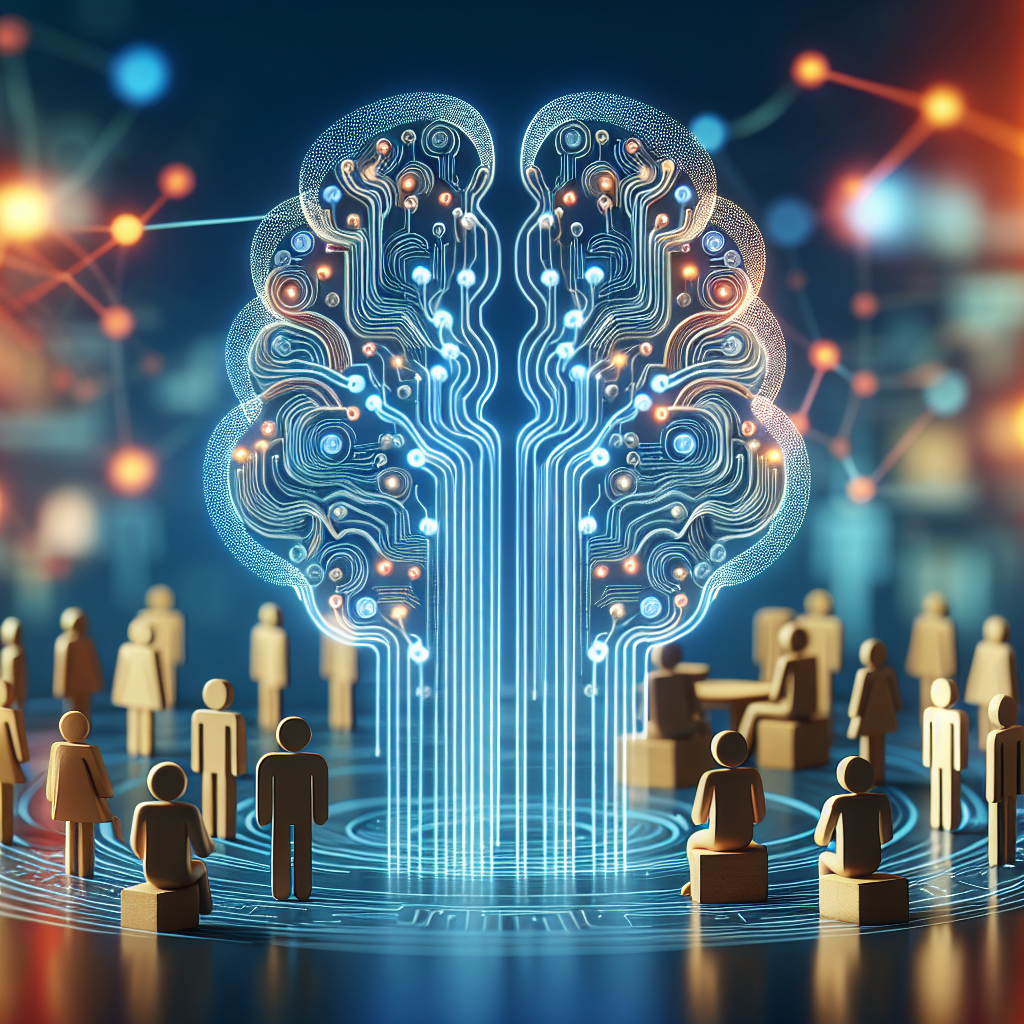Artificial intelligence (AI) has the potential to revolutionize the field of mental health by improving therapy outcomes and accessibility. With advancements in AI technology, mental health professionals can now utilize innovative tools to better understand and treat various mental health conditions. From personalized therapy to early intervention and prevention, AI deployment in mental health is paving the way for a more effective and efficient approach to mental health care.
One of the key benefits of AI deployment in mental health is the ability to provide personalized therapy to individuals. Traditional therapy methods often rely on standardized treatment plans that may not be tailored to the specific needs of each patient. AI, on the other hand, can analyze vast amounts of data to create personalized treatment plans based on an individual’s unique characteristics and needs. This personalized approach can lead to more effective therapy outcomes and improved mental health for patients.
AI can also assist mental health professionals in early intervention and prevention efforts. By analyzing patterns in behavior and speech, AI algorithms can detect early warning signs of mental health conditions before they escalate. This early detection can help individuals receive timely interventions and prevent the development of more severe mental health issues. Additionally, AI can help identify risk factors for mental health conditions, allowing for targeted prevention strategies to be implemented.
Furthermore, AI deployment in mental health can improve accessibility to mental health care for individuals who may not have access to traditional therapy services. With the use of AI-powered chatbots and virtual therapy platforms, individuals can receive support and guidance wherever they are, at any time. This increased accessibility can help bridge the gap in mental health care services and reach individuals who may not otherwise seek treatment.
In addition to personalized therapy, early intervention, and increased accessibility, AI deployment in mental health can also help mental health professionals streamline their workflows and enhance the quality of care they provide. AI-powered tools can assist in tasks such as patient assessment, treatment planning, and progress monitoring, allowing therapists to focus more on delivering quality care to their patients. By automating routine tasks and providing valuable insights, AI can help mental health professionals optimize their time and resources, leading to better outcomes for patients.
Despite the many benefits of AI deployment in mental health, there are also challenges and considerations that need to be addressed. One of the main concerns is the ethical implications of using AI in mental health care. Issues such as privacy, data security, and algorithm bias need to be carefully considered to ensure that AI is used in a responsible and ethical manner. Additionally, there is a need for ongoing research and evaluation to assess the effectiveness and impact of AI-powered mental health interventions.
FAQs:
Q: Can AI replace human therapists in mental health care?
A: While AI can provide valuable support and assistance to mental health professionals, it is unlikely to completely replace human therapists. The human element of therapy, such as empathy, understanding, and emotional connection, is essential in the therapeutic process. AI can enhance the work of therapists by providing data-driven insights and personalized treatment plans, but human therapists play a crucial role in providing emotional support and guidance to individuals in need.
Q: Is AI deployment in mental health safe and secure?
A: Ensuring the safety and security of AI deployment in mental health is a top priority. Mental health professionals and technology developers need to adhere to strict guidelines and regulations to protect patient data and ensure that AI algorithms are accurate and reliable. Measures such as encryption, data anonymization, and regular audits can help safeguard the privacy and security of individuals receiving mental health care.
Q: How can individuals access AI-powered mental health services?
A: Individuals can access AI-powered mental health services through various platforms and applications that offer virtual therapy, chatbots, and online support groups. Many mental health organizations and clinics are integrating AI technologies into their services to provide individuals with personalized and accessible mental health care. It is important for individuals to research and choose reputable platforms that prioritize the privacy and well-being of their users.
In conclusion, AI deployment in mental health is a promising development that has the potential to transform the way mental health care is delivered. From personalized therapy to early intervention and prevention, AI-powered tools can enhance the effectiveness and accessibility of mental health services. While there are challenges and considerations to address, the benefits of AI deployment in mental health are clear. By leveraging the power of AI technology, mental health professionals can improve therapy outcomes and provide better care to individuals in need.

